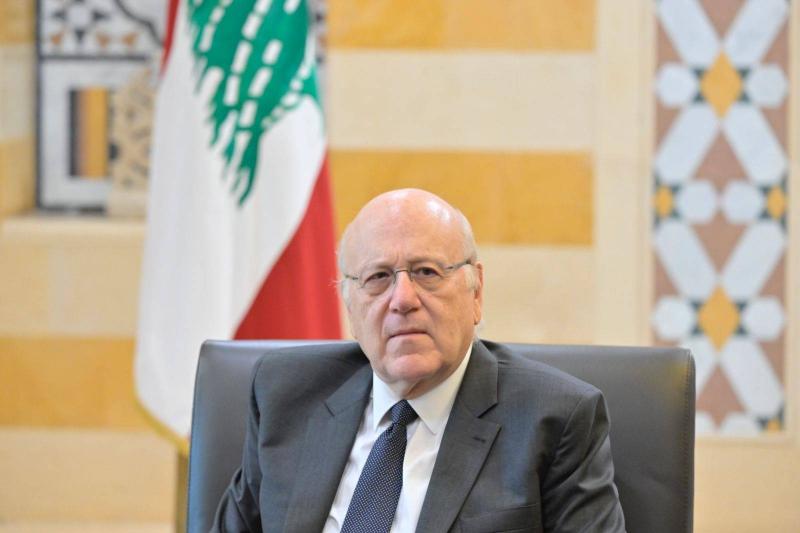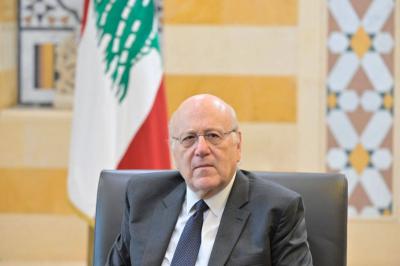Lebanon's Prime Minister Najib Mikati confirmed that "diplomatic communications are ongoing, and we are urging the parties that speak to us to stop the Israeli provocations happening in the south. From our side, we are working with local parties to exercise restraint and avoid dragging Lebanon into any specific dangers." In an interview with "LBCI," he stated: "It is natural that we communicated this stance to international parties and local entities." When asked if he felt assured about the outcome of these communications, he replied: "I only feel reassured when a ceasefire is established in Gaza. As long as there is no ceasefire and Israeli provocations continue, my caution will remain."
In response to a question about why Lebanon was not invited to the "Peace Summit" in Cairo, he answered: "Before the conference convened and invitations were sent, I inquired with the Egyptian administration, which stated that countries of confrontation were not invited, and Lebanon is one of those countries in the region. However, when I saw the attendance of one of the confrontation countries, I inquired and informed the concerned parties that Lebanon should not be distant from any conference, especially if the conference's title is 'Peace Conference.' Lebanon is concerned with the issue of peace in Palestine and the region, particularly since it has Palestinians on its land and various matters related to the peace process."
Mikati added: "I communicated this stance to the Egyptian side, and yesterday I received a call from Egyptian Foreign Minister Sameh Shoukry, who clarified the circumstances of this issue, and I believe that the matter has been resolved. I state that there may have been a mistake in not sending an invitation to Lebanon."
When asked about the possibility of war in Lebanon and whether the country is prepared should war break out, Mikati responded: "We are in a very tense atmosphere in the region, and all neighboring countries are not in a better situation than ours. We are all fearful of what is happening. The practical steps we are taking involve meetings of the disaster council, and we have a complete emergency plan. We have held meetings with all international bodies, and we called on the United Nations for assistance because we lack the essential resources to cope with and confront all situations. We have formed priorities regarding health, the displaced, and communications, and all these issues have been addressed, simulating all possible problems, and hopefully, things will go well, and nothing will happen."
Regarding the situation in Lebanon, he added: "There is a sense of awareness among all parties that Lebanon should be spared from war."




